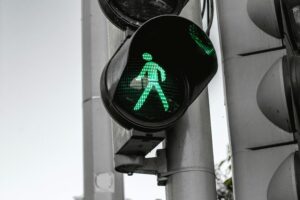What Are Damages?
Damages are compensation, usually in monetary form, awarded in a civil court case for an injury or loss caused by another person’s negligence.
According to the American Bar Association (ABA), damages are tangible and non-tangible losses that can be quantified and documented, providing direct financial assistance to an injured party. Examples of damages can include medical bills, lost wages, pain and suffering, and property damage.
Damages are important in restoring the injured party to the position they would have been in had the wrongdoing not occurred. This concept is fundamental in both tort and contract law, where it addresses breaches of duty or contract, provides a financial measure of reparation, and is even more important in personal injury cases where the injured party receives compensatory damages for medical bills and pain and suffering.
More information about Damages
Can a Passenger Sue Both Drivers After a Car Accident?
You can file an insurance claim or lawsuit to pursue compensation for medical bills, lost wages, and related losses when you’re hurt in a car accident while driving in Pennsylvania. The exact type of claim you file depends on your insurance coverage.
However, you don’t have to be driving to be hurt in an auto wreck. Maybe you’ve been injured as a passenger in a car accident.
This can already complicate matters, as you might not know whose insurance company (if any) is responsible for compensating you now. The case may be even more complex if multiple drivers contributed to the accident.
Determining liability is very important in these cases. For a passenger to receive the full amount of compensation available, they may need to file claims with multiple insurance companies or liable parties. […]
Read MoreMore information about Damages
Fatal Crash in Northeast Philadelphia Claims Passenger’s Life
A 26-year-old passenger died in the early morning hours of December 11 when a BMW crashed into a parked van in Philadelphia’s Mayfair neighborhood, police reported.
The incident occurred at 1:30 a.m. on the 6600 block of Frankford Avenue. According to news reports, the BMW’s driver lost control of the vehicle and struck a parked van, forcing it onto the sidewalk. The passenger was ejected from the BMW and pronounced dead at the scene.
The driver sustained injuries and is receiving medical treatment. Philadelphia police say excessive speed appears to be a factor in the crash.
The investigation remains ongoing.
The Causes of Car Accidents in Philadelphia
Unfortunately, auto accidents occur regularly in Philadelphia. The Pennsylvania Department of Transportation’s latest data shows approximately 8,549 car crashes in the city in 2023. These statistics reflect various contributing factors, […]
Read MoreMore information about Damages
What Does a Wrongful Death Lawyer Do?

A wrongful death attorney helps families file their claims and build strong cases. They work diligently to gather evidence and establish who was at fault. They also fight to secure fair compensation for the family’s devastating losses. The process involves a thorough investigation of the death. They often bring in expert witnesses to strengthen the case. Throughout the process, they handle all negotiations with insurance companies.
Each element plays a vital role in building a compelling case to, ultimately, hold the responsible parties accountable. With a focus on both legal expertise and compassionate support, […]
Read MoreMore information about Damages
Who Gets the Money in a Wrongful Death Lawsuit?

Understanding Wrongful Death Lawsuits
Wrongful death claims are a type of civil lawsuit where a deceased person’s surviving family members can recover damages if their loved one’s death was the result of another person’s wrongful act, neglect, unlawful violence, or negligence. While the most common wrongful death lawsuits are related to car accidents and motorcycle accidents, many other fatal accidents are appropriate for this type of lawsuit, […]
Read MoreMore information about Damages
Is the Driver Always at Fault in a Pedestrian vs Car Accident?
Determining fault in pedestrian-vehicle accidents involves complex factors, as both drivers and pedestrians have specific responsibilities when using roadways. Pennsylvania’s comparative negligence law helps establish liability when both parties may share responsibility for an accident.
Understanding Fault in Pedestrian-Vehicle Accidents
Understanding road rules is critical for both drivers and pedestrians to navigate traffic situations. Drivers must yield right-of-way to pedestrians in crosswalks and be vigilant, especially in heavy traffic areas. Pedestrians must obey traffic signals, cross at designated crosswalks, and remain alert.
Pennsylvania’s Comparative Negligence Law
The law in Pennsylvania follows the approach known as comparative negligence. This means that if the pedestrian and driver are partially at fault in the event of a car accident, the damages recovered in the lawsuit may be reduced depending on the percentage of fault allocated to each. […]
Read More









